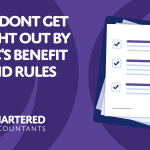The rise of social media in recent years has meant that today there are a plethora of different tools that can be used to the advantage of business owners. This guide will introduce several social media platforms that are currently popular for business use.
Twitter is a micro-blogging service whereby users send and receive messages of up to 140 characters in length to each other, known as “tweets”. Users can track the tweets of other users by “following” them, and in turn can have their tweets “followed”; the more followers a user has, therefore, the more visible their tweets are. Twitter is useful as a business tool because it allows you to personally engage with potential and existing customers, monitor what is being said about your company and keep interested parties up to-date with your company’s newest developments, products and offers. Twitter is free although you can pay for adverts that target particular groups of individuals or businesses. Take a look at @360accountants for some examples of how we use this tool to promote our business.
Many people are already familiar with Facebook as a tool for personal networking, but opportunities exist to use Facebook for business purposes. The most pertinent of these is Facebook Pages, a flexible space within which users can promote their local business, band or organisation, amongst others. Facebook also offer a number of paid advertising solutions, whereby campaigns can be targeted at Facebook users according to defined demographics such as age, location and interests, which can direct people to the company Facebook Page or an external website. Facebook Pages provides useful statistics covering areas such as the age, sex and geographical location of your followers.
360 has been using Facebook for many years – why not go to 360 Chartered Accountants and like our page?
Billing itself as the world’s largest professional network, LinkedIn is designed for users to showcase their professional qualities. User profiles include elements such as professional experience, education and honours & awards, as well as endorsements from other LinkedIn users. LinkedIn is thus a great place to establish yourself as a competent individual within your industry. Moreover, due to the number and diversity of groups on LinkedIn, it can be a great tool for finding and networking with like-minded individuals, as well as discovering potential business partners or additional company personnel. As well as a personal LinkedIn profile, you need to set up a company page so that customers or potential customers can see what products or services you provide and keep up to date with the latest news. You can see the 360 company page by searching for 360, Chartered Accountants.
For more tips and advice on starting up a business come along to our next Saturday Surgery where you can pick up a free copy of our 17/18 New Business Kit. More details here.




